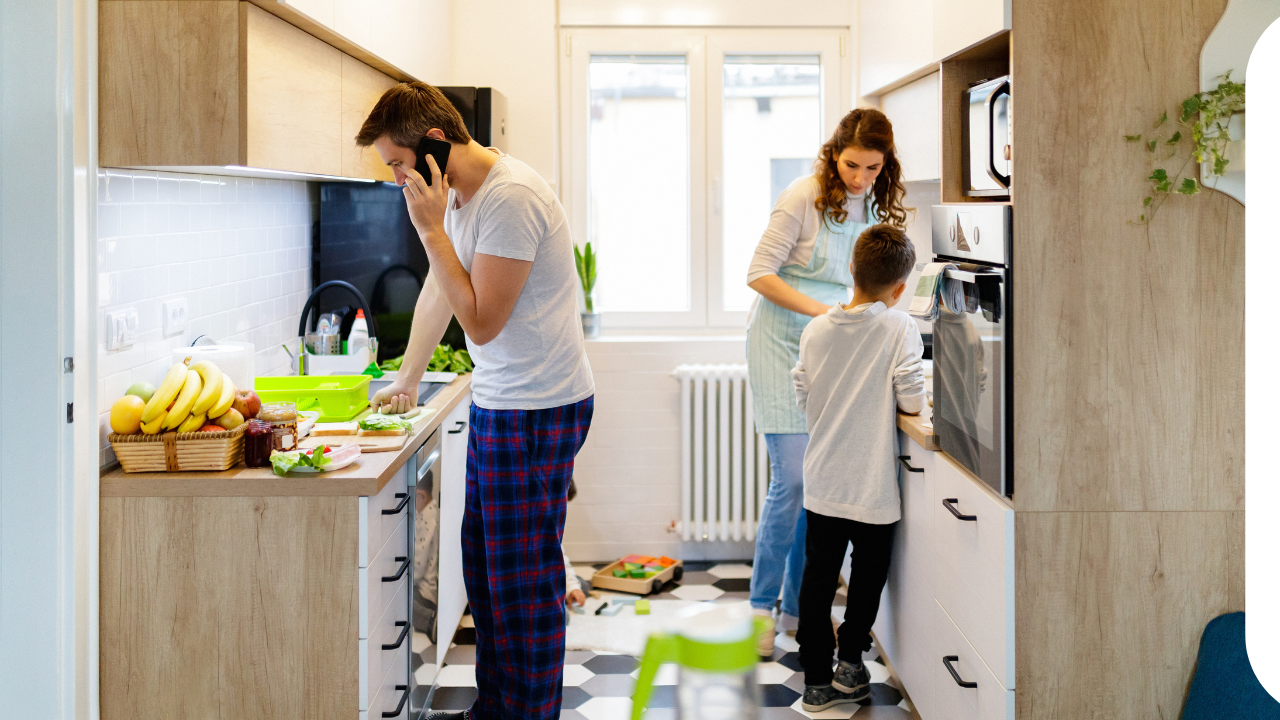Mornings set the tone for the rest of your day. When your morning is rushed, chaotic, or reactive, it often carries that same energy forward—leaving you feeling overwhelmed, irritable, or ungrounded. On the other hand, a simple, intentional morning routine can help you start your day with emotional clarity, calm, and confidence.
Creating a mindful morning isn’t about adding more pressure or making things complicated. It’s about designing a routine that supports your well-being, aligns with your goals, and gives you space to breathe before the demands of the day begin.
Why Your Morning Matters
Your brain is most impressionable in the first hour after waking. This is when your nervous system is still transitioning from rest to alertness. The habits you engage in during this time can:
- Influence your mood
- Set your emotional baseline for the day
- Affect your stress response
- Shape your focus and mindset
Think of your morning as the foundation of your mental and emotional state.
Benefits of a Morning Routine for Emotional Health
- Reduces anxiety and reactivity
- Increases focus and clarity
- Promotes self-awareness and intention
- Boosts resilience to daily stressors
- Helps regulate mood and energy levels
Even 15 minutes of mindful structure in the morning can make a dramatic difference in how you feel.
Step-by-Step: How to Build an Emotionally Supportive Morning Routine
1. Wake Up Gently
Avoid jolting yourself awake with loud alarms or instantly checking notifications. Instead:
- Use a gradual light alarm or calming music
- Take a few deep breaths before getting out of bed
- Stretch your body gently to increase circulation
This slow transition gives your nervous system time to adjust.
2. Start with Stillness
Give yourself a few minutes of quiet before noise. This could be:
- Meditation
- Breathwork
- Prayer
- Simply sitting in silence with a warm drink
This time helps anchor you before the external world pulls your attention.
3. Move Your Body (Even Just a Little)
Physical movement boosts circulation, wakes up your muscles, and elevates mood through the release of endorphins. It doesn’t need to be intense—try:
- Gentle yoga
- Walking outside
- Light stretching
- A short dance session to a favorite song
Movement releases tension and sets a positive tone for the day.
4. Hydrate Before Caffeine
Your body is naturally dehydrated after sleep. Drinking a full glass of water first thing helps:
- Kickstart digestion
- Wake up your brain
- Improve concentration
- Reduce fatigue
Make hydration your first act of self-care each morning.
5. Journal Your Thoughts or Intentions
Taking a few minutes to write can:
- Clear mental clutter
- Help you process emotions
- Center your goals for the day
- Create a sense of direction and clarity
Try journaling prompts like:
- “Today, I want to feel…”
- “I’m grateful for…”
- “My intention for today is…”
Even 3–5 lines can make a difference.
6. Delay Digital Input
Resist the urge to scroll social media, read news, or check emails immediately. Digital input floods your brain with noise, which can trigger stress before your day even begins.
Instead: Allow yourself at least 30 minutes of screen-free time after waking. Protect your attention and give yourself space to start the day on your own terms.
7. Practice Affirmations or Positive Self-Talk
Start the day by building emotional strength with empowering thoughts:
- “I am calm and capable.”
- “I handle challenges with grace.”
- “I deserve peace and clarity.”
Repeating affirmations helps shape your emotional tone and confidence throughout the day.
Realistic Tips for Sticking with Your Routine
- Start small: Even 10–15 minutes can have a powerful effect.
- Be flexible: Your routine doesn’t need to be rigid—adjust it based on your day.
- Prepare the night before: Lay out clothes, prep breakfast, or set up your journal to reduce morning decisions.
- Stay consistent: Repetition turns routines into habits that stick.
- Track your feelings: Notice how your mood changes on days you follow your routine vs. when you don’t.
What If Mornings Are Busy or Unpredictable?
That’s okay. Your routine doesn’t need to be perfect—it just needs to exist. Even one mindful practice—like stretching, breathing, or sipping tea in silence—can ground you emotionally.
If you have kids, early shifts, or responsibilities that compete for time, try:
- Waking up 10 minutes earlier
- Doing a “mini routine” in the bathroom or kitchen
- Listening to a calming podcast or music during your commute
Small actions still count.
Final Thoughts: Begin with Intention, Carry Calm Through the Day
A morning routine is an investment in your emotional health. It’s a gentle way of telling yourself: “You matter. Your peace matters.”
You don’t need to do everything at once. Choose one practice to start with tomorrow. Build from there. Over time, you’ll notice that your mornings—and your life—begin to feel more intentional, balanced, and emotionally resilient.

